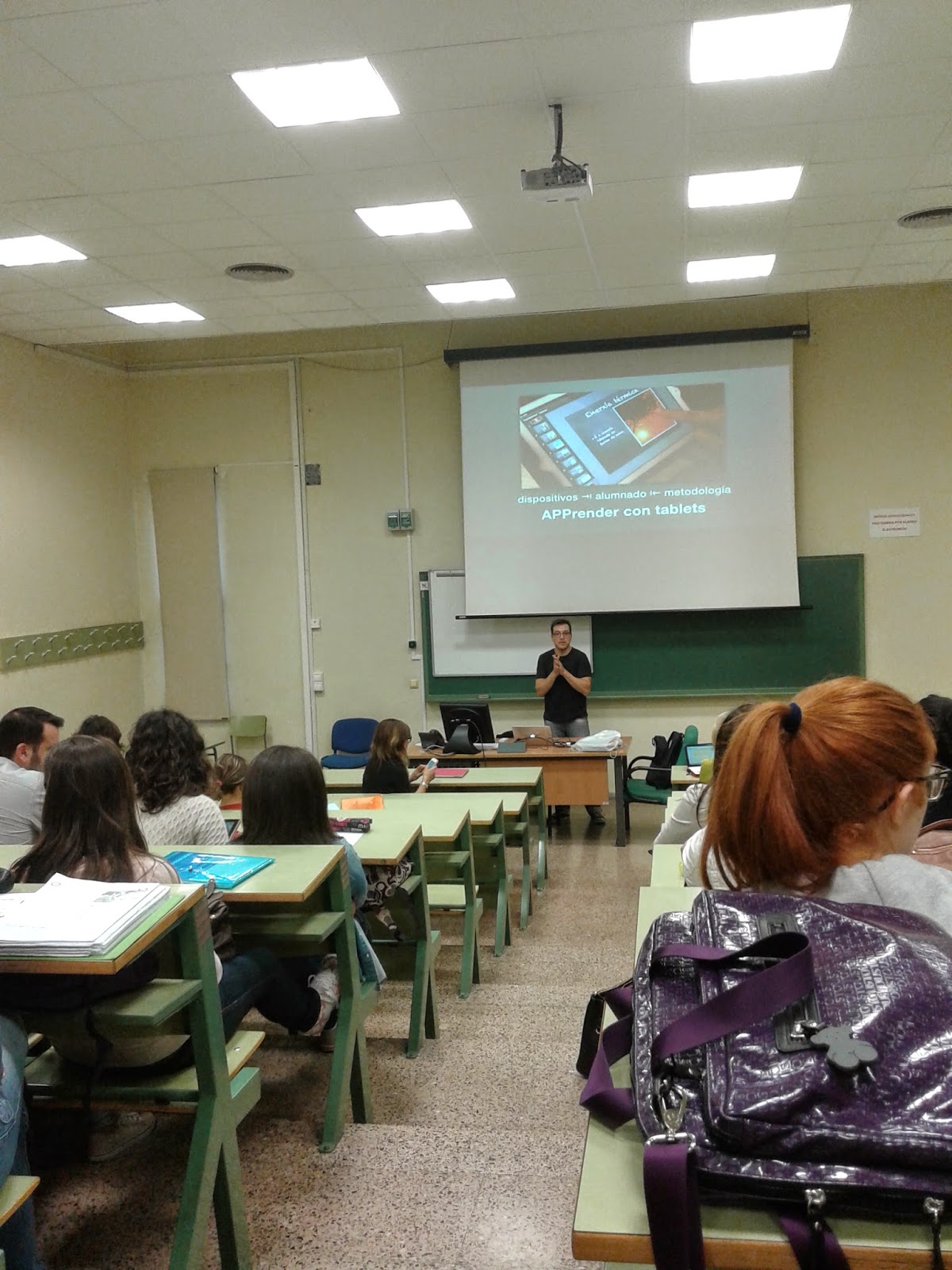Hello
bloggers
This week
we have had a visit from two role models in our future as education
professionals and integrators of the technology and its uses. On Monday we had
a visit from Manel Rives.
This
teacher with over 20 years experience, who has exercised his teaching in
Galicia with primary school students but now he is located in Cartagena
(Murcia) in the IES Polytechnic Institute as a teacher of scientific and
socio-mathematical field for occupational class .
In
addition to all his teaching career, Manel speaks three languages, Castilian,
English and Galician.
Manel
has been immersed in numerous projects related to technology specifically with
the use of the Ipads.
Manel
has been and is immersed in the world of new technologies and using these in
the classroom with students. He has been working with many projects. This past
Monday told us an experience that he had had with his last grade of primary. They
made a web, a kind of radio, which was active for a year, this site had a lot
of visits and won numerous awards.
We were
surprised that he had told us, because with children as young as he was able to
take a project forward which requires daily dedication of everyone and be constant
After class
he proposed us some activities with his tablets besides he was five Ipads which
one he borrowed us . He gave the name of various applications and we had to
investigate each and every one of them and determine what we liked and how we
would use and why. Our example was the application Stopmotion .We would give children
a theme and they developed through snapshots. Our theme was water exchange , ie
the transition from one state to another , so the children would have to show
these processes in photos that would rise to the application and reproduce as a
kind of film.
In
summarized it has been a very useful class and we are very grateful for the visit
of this example in teaching. Tomorrow Jane Challinor will visit us, and we will inform us about her
visit .
Thank you
very much for your attention.





